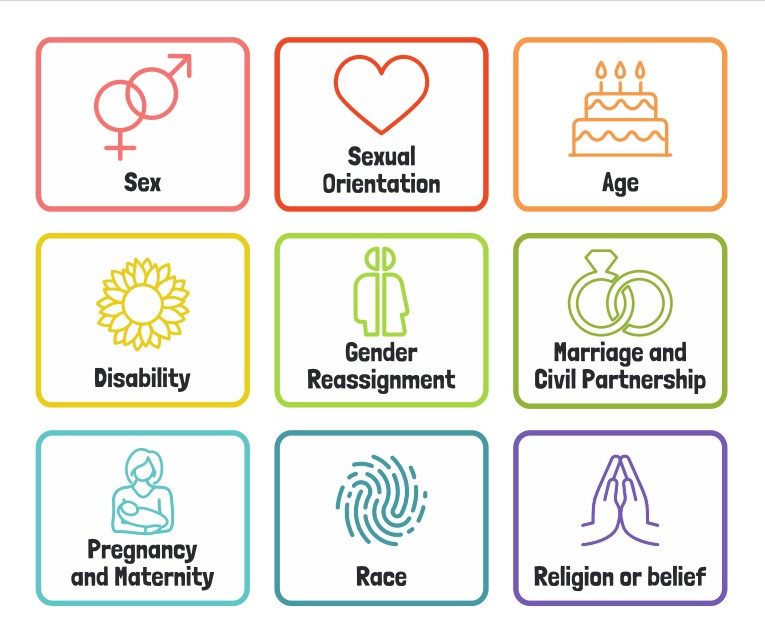Inclusion and Diversity
Equality and Diversity Information
Public Sector Equality Duty Guidance
What is the Public Sector Equality Duty?
The single Public Sector Equality Duty (PSED) came into effect in April 2011 as a result of the Equality Act. It requires public bodies to promote equality and replaced three pre-existing duties relating to disability, race and gender equality.
The PSED applies to all maintained and independent schools, including academies, and maintained and non-maintained special schools.
Protected Characteristics
The Department for Education (DfE) has published non-statutory advice that sets out schools' obligations under the PSED.
Paragraph 5.1 explains that the PSED extends to the following protected characteristics:
- Race, disability, sex, age, religion or belief, sexual orientation, pregnancy and maternity, gender reassignment
Paragraph 5.1 of the document explains that the PSED has three main elements. In carrying out their functions, public bodies are required to have due regard to the need to:
- Eliminate discrimination and other conduct that is prohibited by the Equality Act 2010
- Advance equality of opportunity between people who share a protected characteristic and people who do not share it
- Foster good relations across all characteristics, and between people who share a protected characteristic and people who do not share it
Due Regard
Paragraph 5.4 of the DfE's advice says that 'due regard' has been defined in case law and means giving "relevant and proportionate consideration to the duty".
For schools, this means:
- Decision makers must be aware of the duty to have due regard when making a decision or taking action, and must assess whether it may have implications for people with particular protected characteristics.
- Schools should consider equality implications before and at the time that they develop policy and take decisions, not as an afterthought, and they need to keep them under review on a continuing basis.
- The PSED has to be integrated into the carrying out of the school’s functions, and the analysis necessary to comply with the duty has to be carried out seriously, rigorously and with an open mind.
What does our school do to eliminate discrimination?
We have set a clear vision and values which expect all our staff to act in a non-discriminating manner and be mindful to avoid actions that will be deemed as such to the public and our wider community.
We have up-to-date and ratified policies which set out a clear message that discrimination is not tolerated. This includes the staff code of conduct, behaviour policy, anti-bullying, safeguarding and child protection policies.
We understand that it is unlawful to fail to make reasonable adjustments to overcome barriers to using services caused by disability.
The governing body and school leaders involved in recruitment will avoid unlawful discrimination in all aspects of employment including recruitment, promotion, opportunities for training, pay and benefits, discipline and selection for redundancy.
Through our new curriculum and our structured PDL curriculum offer (including SCARF curriculum), assemblies, workshops and visits, equalities are discussed with and taught to the children, exemplifying the British Values and school values that we believe in. Planning across all areas of the curriculum uses resources and case-studies which reflect diversity and challenge stereotypes.
School display space is used to promote awareness of protected characteristics, and we are setting up an EARA (Equality and Rights Advocates) group to work with other local schools to promote and develop an inclusive ethos for the school; this will be shared through their position on the School Council and initiatives such as leading assemblies.
|
We have adopted these symbols, from Picture News, to use across the school whenever one of the characteristics is referenced. We have a section in our library which shows books which feature characters representing them.
|
Promoting diversity through protected characteristics


For information on Hampshire's services for young people with special educational needs and disability, advice and support service, please click below:





